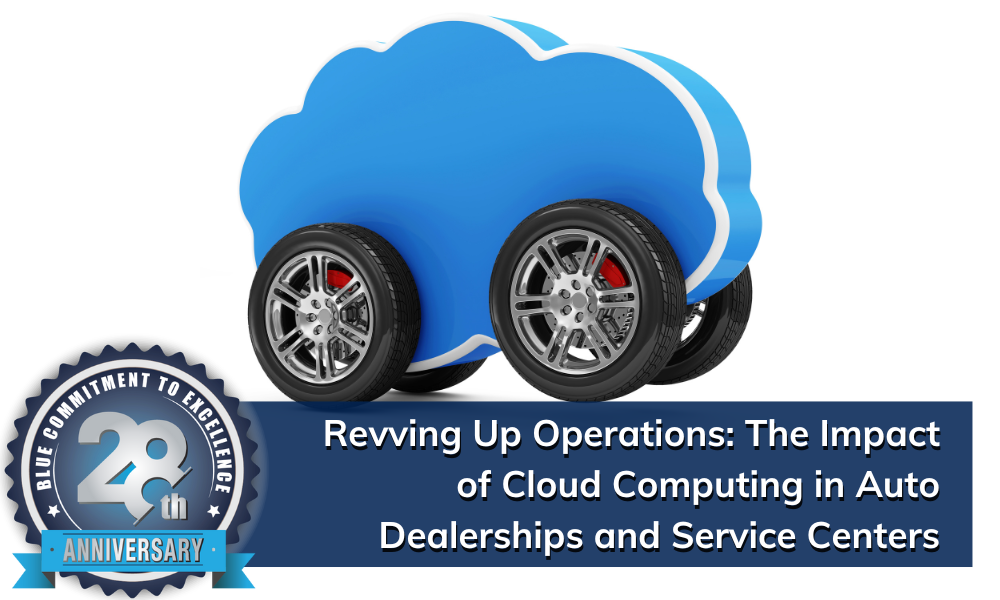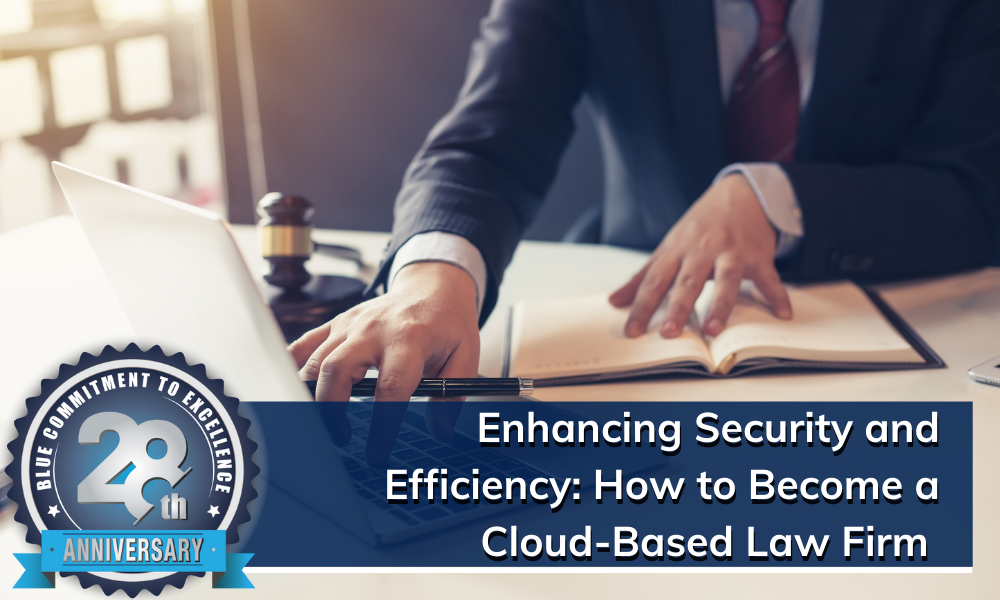In the dynamic landscape of modern education, the integration of technology has become paramount for fostering enhanced learning experiences, facilitating remote education, and optimizing administrative tasks. Among the technological advancements, cloud computing stands out as a transformative force, revolutionizing the way educational institutions operate and deliver knowledge. Our blog will delve into the multifaceted role of cloud computing in education, exploring its impact on learning experiences, remote education, and administrative efficiency.
Leveraging Cloud Computing for Enhanced Educational Outcomes
Topics: education, Cloud computing, Cloud-based learning, Cloud solutions
Revving Up Operations: The Impact of Cloud Computing in Auto Dealerships and Service Centers
Cloud computing is an invaluable tool for auto dealerships and their service centers, and it is becoming increasingly popular. With the right provider, auto dealers can take advantage of cost savings, improved security, and increased productivity. Cloud computing also provides a reliable resource for disaster recovery that enables quick responses in emergency situations. As more auto dealers recognize these benefits, cloud computing is becoming an essential part of any modern dealership's technology strategy.
Topics: Cloud computing, auto dealerships, Cloud computing technology, Cloud computing in auto dealerships, Service centers
The Power of Managed IT Cloud Services for Utilities Companies
Cloud services are revolutionizing how utilities, energy, and agriculture companies operate. From cost savings to increased efficiency, cloud-based solutions offer many advantages that can help these businesses improve operations and increase their competitive edge. By taking advantage of the scalability, agility, and flexibility of cloud services, utilities can save time, money, and resources while reducing risk at the same time.
Topics: Managed IT, Cloud computing, MSP, utilities, cloud services, Managed IT and cloud services for utilities
Enhancing Security and Efficiency: How to Become a Cloud-Based Law Firm
The legal industry is undergoing a significant transformation with the increasing adoption of cloud services. By becoming a cloud-based law firm, legal offices can now store and access their data from any location, collaborate with clients and colleagues in real-time, and streamline their operations. A cloud-based firm is one that runs key elements of their business from legal research to payments, client intake, human resources, and bookkeeping by using the cloud.
Topics: legal, Cloud computing, cloud services, law firms, legal offices, cloud-based law firm, becoming a cloud based law firm
Data Privacy and the Cloud for Law Firms
Hackers are continuing to find new ways to gain access to the sensitive data handled by legal firms, making a data breach more a question of “when” rather than “if” for the legal industry. In fact, the American Bar Association (ABA) published a report that detailed that almost half of all firms had some incident with malicious actors. In response, law enforcement entities now separate businesses into just two groups: Those that have already been hit by a data breach and those that will be hit in the future.
Topics: Cloud computing, law firms, legal services
How Cloud Computing Can Improve Supply Chain Management
With the advent of the coronavirus pandemic and its associated impact on the supply chain, the issue of improving supply chain management has never been more topical. The entire world is laser focused on creating new and better ways to ensure this level of disruption does not easily occur again. And as modern commerce grows even more complex, the need for new technologies to maximize supply chain management capabilities is crucial.
Topics: Managed IT, Cloud computing, supply chain
Why Identity Management is Critical for Manufacturers Using Cloud Technology
A startling new report underscores the vulnerability that manufacturers face when moving data into the cloud. In fact, over half of all manufacturing operations were attacked through their cloud infrastructure in 2022. In general, more manufacturers have moved operations into a cloud-based environment in order to support hybrid work environments and remote workers as industry responded to pressures prompted by the pandemic.
Topics: #Manufacturing, Cloud computing, cloud technology
How Auto Dealers Can Amplify Customer Relationships with Cloud Based CRMs
Customer relationship management (CRM) is the blanket term for a group of tools and techniques that help businesses understand the needs and desires of their customer base to optimize sales and marketing. By collecting and understanding essential information about your customers such as purchase records, buying habits, demographic information, and cross-channel messaging, a CRM can help you provide a better customer experience.
Topics: Managed IT, Cloud computing, auto dealerships, cloud-based crm
The Importance of Data Backup for Utilities
The last few years have been difficult for utilities, as they reacted to the challenges of changing weather patterns, higher fuel prices, and legacy equipment. As we move through the aftermath of the pandemic, customers and policymakers alike are taking a keen interest in utility operations. For utility owners and management, this scrutiny should encourage them to look toward creating actionable strategies aimed at increasing resiliency and reliability as well as customer trust.
Topics: Cloud computing, cloud services, cloud storage
What Your Law Firm Must Know About Cyber Security
Like businesses in all industries, legal firms are at risk of attack from cybercriminals. But there is an added layer of responsibility that comes with providing legal advice to clients — and that is ensuring that they understand how to keep their data safe as well. In many cases, law firms provide targeted guidance to clients such as boards of directors, C-suite professionals, and others on cyber risk and how to minimize it.
Topics: #cybersecurity, #LawFirm, Cyberattack, Cloud computing, cybercrime







.png)
.png)
.png)


